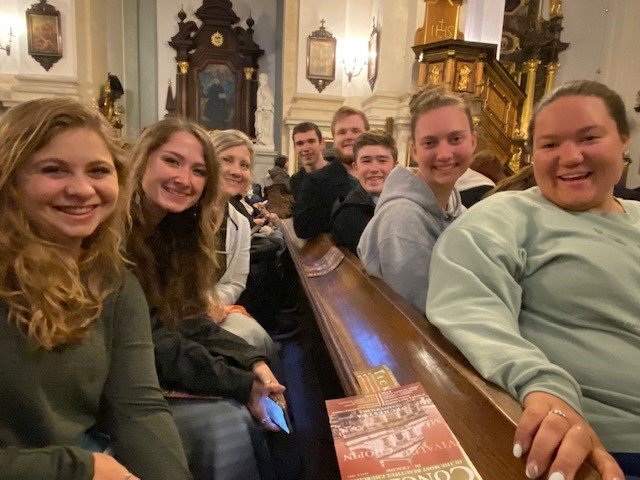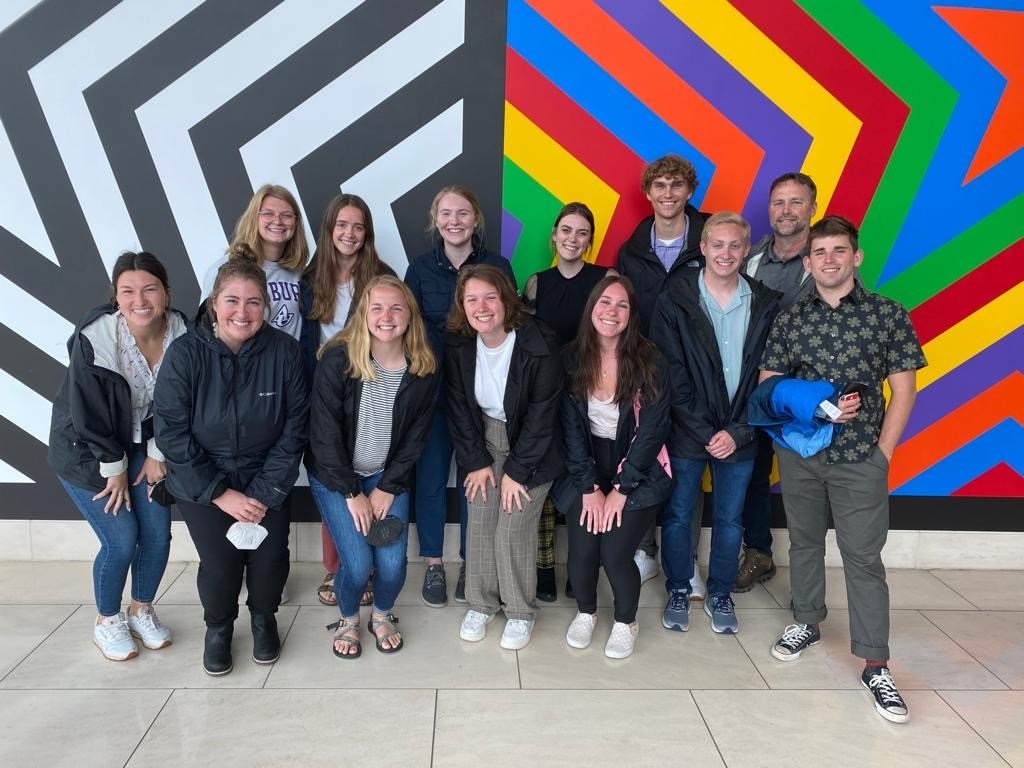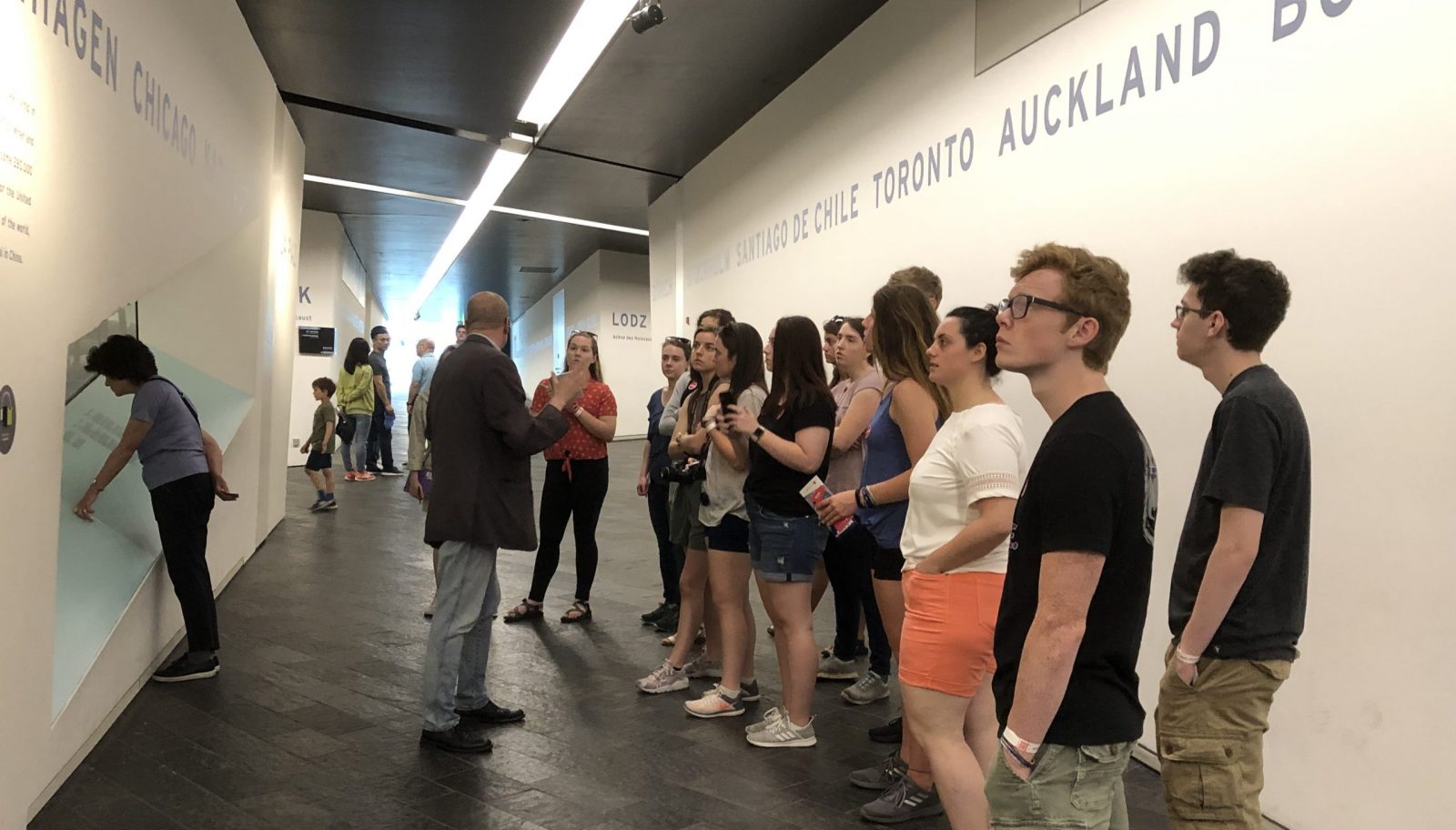About ten years ago, I found myself in mid-career and looking for some new direction. A good friend of mine, Dr. Brian Shelton, who had significant experience with study abroad trips, suggested we combine our interests and offer a psychologically and theologically themed Holocaust Studies tour of central Europe. We crafted together a rather ambitious schedule that covered 4 cities in about 9 days. Amidst the many museums, memorials, and related points of interest were two concentration camps, Dachau and Auschwitz. Even though we had over 30 students combined from two different institutions, everything went off without a hitch. A clear study abroad success.

A couple weeks after we returned, as I read the reflection papers students were turning in, I began to realize the magnitude of the impression this experience had left on them. Curiously, this horrendously dark topic had served to illuminate and bring to the surface for them many of the enduring issues of the human experience: who we are as individuals and collectives, our root motivations and fears, and our twin capacity to both engage in evil and then justify our actions. Having learned the ropes from my friend, I decided to lead another group on my own the next year – the opportunity for impact was simply too great to pass up. Well, now ten years have passed, and over that decade I’ve taken a group every year, outside of Covid interference. Crazy…
Throughout those years, although the basic structure and purpose of the tour has stayed the same, the programming has both proliferated and deepened. Since 2014, we have added several new sites including Sachsenhausen, Ravensbrück, and Płaszów Concentration camps, the Wannsee House, the Brandenburg Euthanasia Memorial, the U. S. Embassy in Berlin, and if time allows a quick trip to Wittenberg (the city of Luther does not tie directly into the Holocaust, but hey, it’s Wittenberg!). This year we are going to explore a new place north of Berlin called Alt Rehse, a medical training facility the Nazis set up to prepare the nation’s doctors for the job of cleansing the German germ plasm of disease, degeneration, and foreign invasion from “inferior” humans. (This new location is of heightened interest to many of this year’s cohort who have their eye on a career in medicine.)

When I track intellectual movements in psychology with my students back to their origins, I often employ the phrase “ideas go places” to help them understand the flow of an ideological progression. In a similar way, the idea of this tour has certainly gone places. I simply could not have imagined ten years ago where this Holocaust-themed study abroad tour was going to take me and my students; the different people we would met, the conversations we would have, the things we would see, and the emotions we would feel. And when I run into these students months or even years later, invariably they are quick to tell me how often memories from the tour come to mind, how frequently they pull out the pictures to share with someone else, or how often a news headline or current event reminds them of this or that aspect of the experience.
As for me, each time I come back, I am so emotionally and physically exhausted that I wonder if I could ever bring myself to do it again…that is, until I read their reflection papers a couple weeks later.
[If you want to follow along with this year’s group, check out the entry and pictures I endeavor to post every day on this website. I hope to start on May 7th when the students arrive in Germany and meet me in Berlin.]
